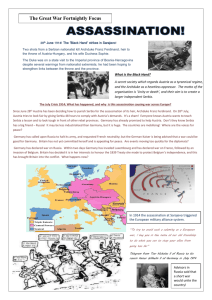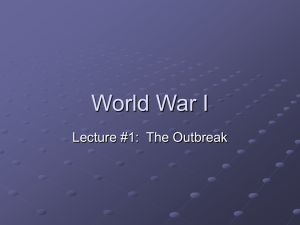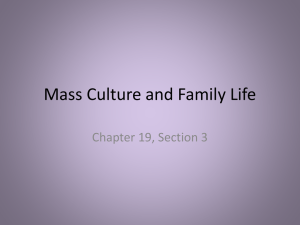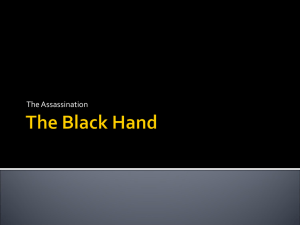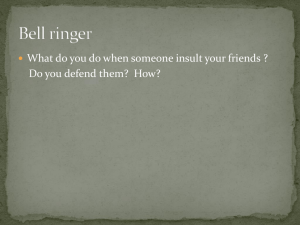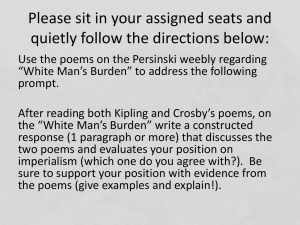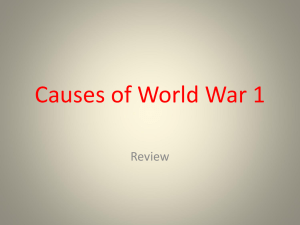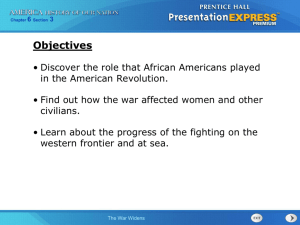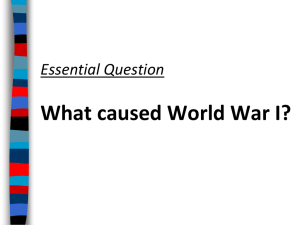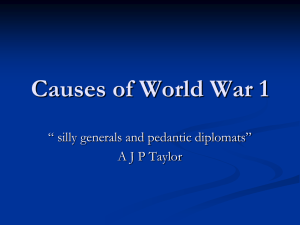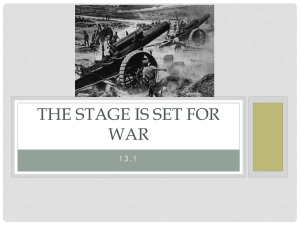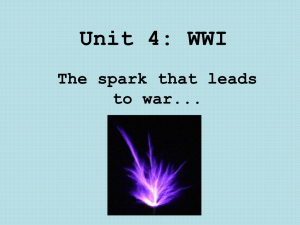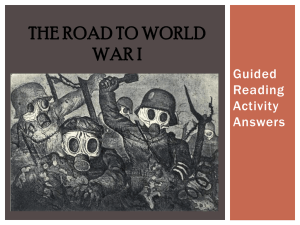Section 2 – The Guns of August
advertisement
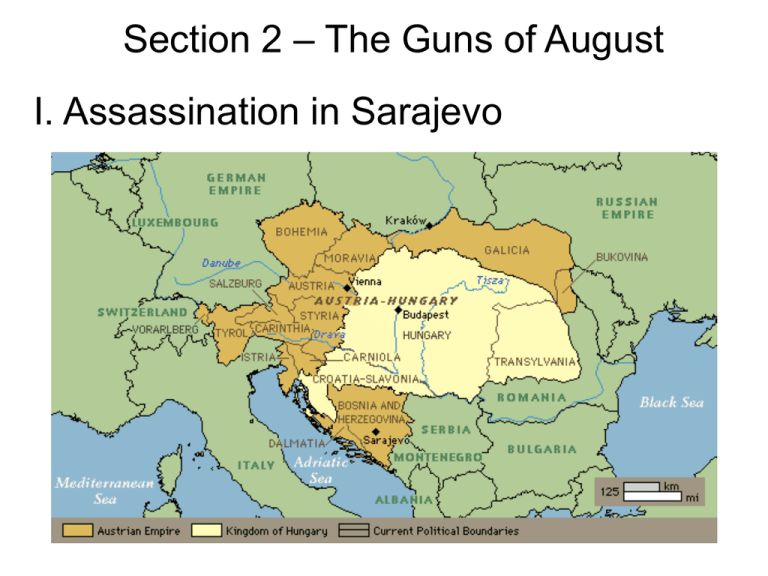
Section 2 – The Guns of August I. Assassination in Sarajevo Setting the Scene: Bertha von Suttner devoted her life to peace. Though the daughter of a noble Austrian military family, she wrote a best-selling antiwar novel and organized a peace society. Her tireless work won her the nickname "Peace Bertha.” Yet, in April 1913, Suttner wrote in her diary that "the great European disaster is well on its way. If so many seeds have been sown, surely the weeds will sprout up soon and surely so much stockpiled gunpowder will explode." "Peace Bertha" died on June 20,1914. Eight days later, an assassin's bullet set off the "gunpowder" and ignited a war that engulfed much of the world for four bloody years. I. Assassination in Sarajevo The crisis began when Archduke Francis Ferdinand of Austria-Hungary announced that he would visit Sarajevo, the capital of Bosnia Franz Ferdinand of Austria and his Wife Sophie von Hohenburg Leave the Town Hall in Sarajevo and Get into their Car (June 28, 1914) I. Assassination in Sarajevo Austria-Hungary ruled Bosnia, home to many Serbs and other Slavs, and the visit angered Serbian revolutionaries Archduke Franz Ferdinand and Duchess Sophie at Sarajevo on 28th June, 1914 I. Assassination in Sarajevo Members of a Serbian terrorist group known as the Black Hand vowed to take action Seal of the Black Hand I. Assassination in Sarajevo On June 28,1914, Serbian terrorist Gavrilo Princip assassinated the archduke and his wife Gavrilo Princip assassinates Ferdinand and Sophia II. The Conflict Widens Austrian emperor Francis Joseph’s government saw the incident as an excuse to crush Serbia for good II. The Conflict Widens Austria sent Serbia an ultimatum that included allowing Austria to investigate the assassination The arrest of a member of the 'Black Hand' group after the assassination of Franz Ferdinand II. The Conflict Widens Serbia did not agree to all of the terms of the ultimatum and Austria declared war on Serbia on July 28, 1914 In the aftermath of the assassination of Archduke Ferdinand, Austria made ten demands of Serbia. An Austrian official would be appointed to monitor the fulfillment of these demands. The Serbians accepted all but this last demand, and war was declared. II. The Conflict Widens Kaiser William II advised Francis Joseph to take a firm stand toward Serbia and assured him of Germany's full support Kaiser William II wrote to Francis Joseph, advising him to take a firm stand toward Serbia. The Kaiser assured the emperor of Germany's full support. Thus, instead of urging restraint, William II gave Austria a "blank check” of assistance II. The Conflict Widens Serbia sought help from Russia, and Czar Nicholas urged the Kaiser to ask Austria to soften its demands Czar Nicholas II of Russia II. The Conflict Widens The Kaiser refused to help and Russia began to mobilize, or prepare its military forces for war Russian Army Mobilization II. The Conflict Widens When Russia began to mobilize, Germany responded by declaring war on Russia Germany/Austria-Hungary versus Russia II. The Conflict Widens Because Russia appealed to its ally France for help, Germany declared war on France Germany versus France II. The Conflict Widens Italy chose to remain neutral and Britain was uncommitted until Germany's war plans made the decision for Britain II. The Conflict Widens General Schlieffen had developed a plan of attack against France requiring German armies to march through neutral Belgium II. The Conflict Widens European powers had signed a treaty guaranteeing Belgian neutrality - when Germany invaded Belgium, Britain declared war II. The Conflict Widens Once war plans were set in motion, conflict was inevitable. Now that war had come, it seemed like an exciting adventure to many "The lamps are going out all over Europe. We shall not see them lit again in our lifetime” British politician Sir Edward Grey’s comment when the war began
